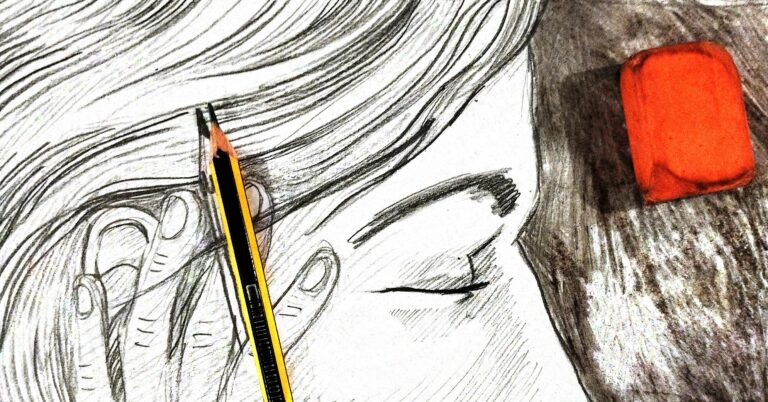The Romanian version of our programme will be available soon. All our events will be translated!
Thursday, 9 May
Higher education in Cluj – the challenges of transparency and accountability
Planetarium, 19:00
During the discussion, we will explore the transparency challenges faced by higher education institutions and advocacy organisations, and together we will look for possible solutions on how to improve the enforcement of students’ rights. We need transparent systems and accountability. Can our existing community forms take this challenge?
Andrea-Tekla Ábrahám, former student of philosophy and economic informatics at BBTE, member of SZEMinárium
Kriszta Kedves, graduated in pedagogy, theatre and anthropology, works in theatre education at UTP, is preparing for a doctorate
Anna Kiss, runs the Transylvanian public affairs podcast Miközöd?!, and produces the weekly podcast „Tilos a Bé” for uh.ro
Gellért Nagy, lawyer, doctoral student, lecturer at Sapientia EMTE Cluj-Napoca
*
Friday, 10 May
Screening of the film La Saga des Conti
Sapientia EMTE, 13:00
In 2009, Continental closed a factory in France to relocate its production to a factory in Timisoara, Romania. A documentary film about the struggle of the French workers for higher severance pay has been produced and will be shown in Cluj, with Romanian and Hungarian subtitles, more than ten years after the closure of the Clairoux factory. The film is of particular importance given that Continental recently announced plans to lay off 1,750 Romanian workers by 2025.
After the screening, Noémi Lehoczki, journalist at Mérce will talk with Roland Szpirko, one of the film’s protagonists and union activist.
*
Revisiting the ‘2020 Ditrău xenophobic incident’: Reconstructing local frameworks, mapping Romania’s immigration debate
Planetarium, 19:00
Between January and February 2020, a group of residents of Ditrău mobilised themselves against two newly arrived Sri Lankan workers employed at a local bakery. Images and words of the revolted locals voicing their desire to expel the foreign workers from their town rapidly became viral in the Romanian and international mainstream media. The ‘incident’ was epitomised in an alleged collective refusal to buy and eat the ‘white bread’ now kneaded by ‘black hands.’ Our short 20 minute presentation and the subsequent discussion presents the ‘incident’ from two different angles. First, it approaches it as the first collective action against immigrants amid Romania’s transformation from a sending country into a receiving country. We aim to reconstruct and investigate the role of the social setting that lead to the incident, contrasting class and ethnicity, as two sets of social categories along which collective action can be organised. Second, we approach the Ditrău incident as a national media event, arguing that it has been a cornerstone of the debate on immigration in Romania, still defining its framework to this day.
Tamás Kiss, sociologist, National Institute for Minority Studies
Luis Escobedo, University of Free State (South Africa), Romanian Society for Intercultural and Migration Studies (Societatea pentru Studii Interculturale și ale Migrației – SoSIM), research partly conducted as a fellow of the National Institute for Minority Studies
Tibor Toró, political scientist, lecturer at Sapientia EMTE
*
Saturday, 11 May
The chances of Roma emancipation in Szeklerland
Tranzit House, 16:30
Szeklerland is often referred to as a „Hungarian-only” region of Romania, but it is less often mentioned that roughly 10% of the population of Szeklerland is Roma. What experiences do Roma young people have of being a double minority? What do they have to deal with, what are their plans and expectations at the individual, institutional and community level? What are the most important steps on the road to Roma emancipation and what should be the basic principles of cooperation?
András Borbély, editor of the új szem will be talking with Blanka Barabás, Inesz Bódi, Zoltán Gergely, Renáta Ioni and Máté Isztojka.
*
Launch of the új szem journal
Planetarium, 19:00
Having been established in 2015 as a literary journal, to then become known as a forum for radical left-wing thought, „új szem” was relaunched in 2023 by an editorial board consisting of university graduates from Cluj/Kolozsvár and Pécs, Hungary.
Three editors of the journal, all having started their career at the Faculty of Humanities in Cluj/Kolozsvár, discuss how they arrived to a critique of capitalism in response to some phenomena in contemporary literature, and how they are seeking answers to the question of what tools does art have to capture the current state of affairs and to produce a new kind of social imagination.
Tamás János, master’s student, editor of új szem, wage worker
Dia Marin, PhD student, editor of új szem, teacher, mother
Örs Székely, PhD student, editor of új szem, church organist
*
Sunday, 12 May
March of the Disaffected
Piața Mihai Viteazu/ Széchenyi tér, 12:30
Organised by SZEMinárium and Căşi sociale ACUM!/ Social Housing NOW!. The aim of the march is to give visibility to the out-of-control social problems of Cluj in a unified framework, and to share the joy of self-organisation and live encounter in a real „May Day” picnic.
*
On the neoliberalisation and unlivability of Cluj/ Kolozsvár
Parcul Feroviarilor/ Vasutas park, 15:30
After the regime change in 1989, many global tech companies flooded into Romania with the aim of making more profit through cheap labour and infrastructure. In Cluj-Napoca, this process started to transform the city’s image from the 2010s onwards and had a strong impact on the social processes taking place in the city. Among other things, with NTT’s „move in” in 2013, it became clear that the city’s future is very much in line with the company’s vision, which is marked by the slogan „connecting global opportunities with local customers”. The overwhelming rise of global capital has led to a two-sided transformation: on the one hand, global status has required a rebranding of the city (‘smart city’, ‘Silicon Valley of Eastern Europe’, more recently ‘elite city’, etc.), and on the other, it has played a key role in the growth of inequalities across different dimensions and the emergence of other social problems.
The aim of the panel is to bring together the views of organisations and professionals working on specific social problems and to stimulate a common reflection among all those concerned and/or interested in issues related to housing, livelihoods, education, environment, marginalisation, discrimination, etc.









